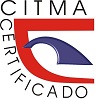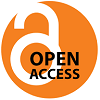Fundamentals of the intercultural training of the students of the Speciality of Spanish in China.
Keywords:
training, interculturality, intercultural competence.Abstract
Internationalization has promoted the development and prosperity of the world economy, economic development, cultural exchanges between countries, as well as the development of cultural diversity, which can promote exchange and communication between different cultures, learn from the strengths of others and minimize conflicts caused by cultural differences, which are increasingly prominent. For this reason, promoting intercultural training is a necessity in the current context. The research has been oriented to achieve as objective: to determine the characteristics of the intercultural training process of the students of the specialty of Spanish in the Faculty of Foreign Languages of the LinYi University, For this, they were used as methods from the theoretical point of view, the historical-logical and from the empirical point of view the analysis of documents and the survey of students and professors of that faculty, to carry out the analysis of the behavior of this process in the identified context. It was recognized that the process of intercultural training of students in this specialty at LinYi University presents limitations due to its non-systemic and decontextualized nature, which prevents them from appropriating intercultural competence and causes limitations in communication, recognition and respect for diversity. cultural. For this, foundations were provided that serve as a theoretical-methodological platform for this training process, as an essential content of a pedagogical strategy for its improvement in the particular context of ULY.
Downloads
References
Barrera, S., & Cabrera, J. S. (2021). La relación entre cultura, interculturalidad y educación: fundamento de la enseñanza de culturas extranjeras. Rev. Mendive, 19(3). (p. 1001). http://scielo.sld.cu/scielo.php?script=sci_arttext&pid=S1815-76962021000300999
Benet, E., & Ayuso, E. (1995). Problemática didáctica a la genética en la enseñanza [conferencia]. Evento Internacional Pedagogía, 95., La Habana, Cuba.
Central People's Government of the People's Republic of China (Ed.) (2010). Esquema del Plan Nacional de Desarrollo y Reforma Educativa de Mediano y Largo Plazo (2010-2020). https://www.gov.cn/jrzg/2010-07/29/content_1667143.htm
Cruz Rizo, L. (2007). Modelo de lectura intercontextual en lenguas extranjeras con fines periodísticos [Tesis de doctorado]. Universidad de Oriente.
Dai Xiaodong. (2022). The Construction of Intercultural Competence Model from the Perspective of Chinese Teachers. Foreign Language World, (05), 20-28. https://eproxy.lib.tsinghua.edu.cn/https/HP4eZ4KpaHfKNLSSKkTxZ2UdAYXAtT2/kcms2/article/abstract?v=3uoqIhG8C44YLTlOAiTRKibYlV5Vjs7iJTKGjg9uTdeTsOI_ra5_XU8T4AGvM8I2RQJHqdiGjSV8FNFE2XV4UwlcNGZ1MvIP&uniplatform=NZKPT
Dai, Xiaodong. (2019). Sixty Years of Development of Intercultural Competence Theory: History and Prospect. Foreign Language World, (04), 58-66. https://eproxy.lib.tsinghua.edu.cn/https/HP4eZ4KpaHfKNLSSKkTxZ2UdAYXAtT2/kcms2/article/abstract?v=3uoqIhG8C44YLTlOAiTRKibYlV5Vjs7iLik5jEcCI09uHa3oBxtWoM5n5wLVcp8crg3SuuwJMzlfmDpdBa8CbXqSMXq0aL7g&uniplatform=NZKPT
Published
How to Cite
Issue
Section
License
Copyright (c) 2023 Ping Li, Taymi Breijo Worosz, Vilma María Pérez Viñas

This work is licensed under a Creative Commons Attribution 4.0 International License.
Horizonte Pedagógico es una revista Open Access, lo que quiere decir que todo su contenido es accesible libremente sin cargo para el lector o su institución. Los usuarios están autorizados a leer, descargar, copiar, distribuir, imprimir, buscar o enlazar a los textos completos de los artículos de esta revista sin permiso previo del editor o del autor, de acuerdo con la definición BOAI de open access. Los autores que publican en esta revista están de acuerdo con los siguientes términos: Los autores conservarán los “Derechos de autor” y garantizan a la revista el derecho de ser la primera publicación del trabajo. La revista se encuentra protegida bajo una licencia internacional de Creative Commons Attribution License Atribución 4.0 Internacional (CC BY NC 4.0), que permite a otros compartir (copiar y redistribuir el material en cualquier medio o formato) y adaptar (remezclar, transformar y construir a partir del material), para cualquier propósito, incluso comercialmente. Bajo las siguientes condiciones: atribución (usted debe dar crédito de manera adecuada, brindar un enlace a la licencia, e indicar si se han realizado cambios y no comercial — Usted no puede hacer uso del material con propósitos comerciales. Puede hacerlo en cualquier forma razonable, pero no de forma tal que sugiera que usted o su uso tienen el apoyo de la revista o el autor de la publicación.






















